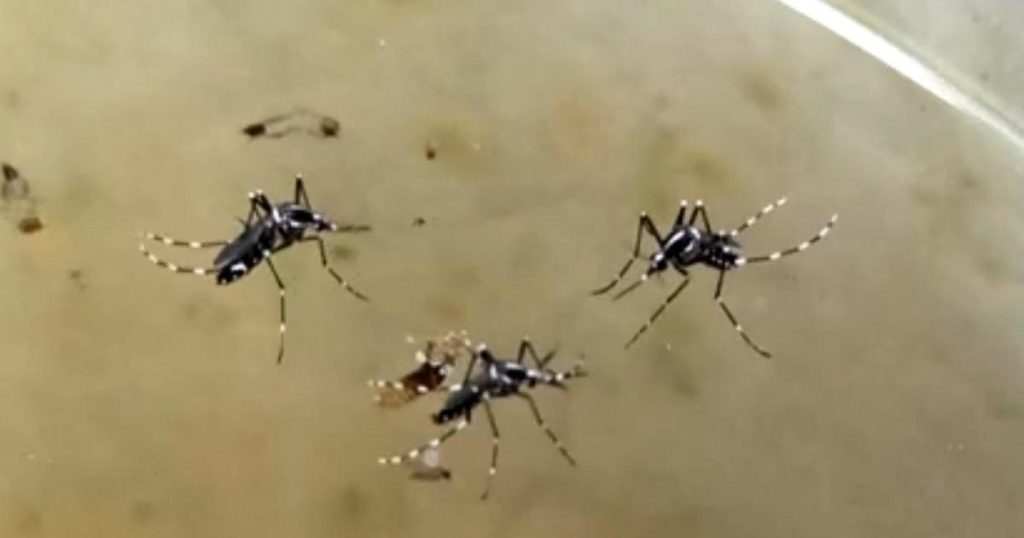Residents in four towns in Massachusetts are being urged to stay indoors after dark due to the risk of a dangerous virus spread by mosquitoes. The towns do not have the funds to spray for the pests, so residents are being advised to take precautions to protect themselves. The virus, which is potentially deadly, has prompted concerns among locals and officials about the need for preventive measures to prevent its spread.
The virus, known as Eastern Equine Encephalitis (EEE), is spread by mosquitoes and can have severe consequences for those who become infected. In response to the threat, residents are being asked to remain indoors after dark until at least October, when the mosquito population is expected to decrease. This measure is intended to reduce the risk of exposure to the virus and protect community members, especially those who are more vulnerable to its effects.
Local officials are facing challenges in addressing the issue due to limited resources and funding for mosquito control efforts. Without the means to conduct widespread spraying for mosquitoes, towns are relying on residents to take individual precautions to reduce the risk of exposure to EEE. The situation highlights the importance of community awareness and cooperation in safeguarding public health against threats such as mosquito-borne diseases.
The urgency of the situation has prompted calls for increased support and resources to combat the spread of EEE in Massachusetts towns. Local authorities are working to raise awareness about the risks associated with the virus and the importance of taking preventive measures to protect against mosquito bites. Residents are being advised to use insect repellent, wear protective clothing, and avoid outdoor activities during peak mosquito activity times to minimize their risk of infection.
As the mosquito season continues, residents in Massachusetts are being urged to stay vigilant and proactive in preventing the spread of EEE. The virus poses a serious threat to public health, and it is essential for individuals to take measures to protect themselves and their communities. By following guidelines and staying informed about the latest developments, residents can help to reduce the risk of EEE transmission and ensure their well-being.
In the face of limited resources and funding for mosquito control efforts, the collective action of residents is crucial in combating the spread of EEE in Massachusetts towns. By working together and following recommended precautions, community members can contribute to the overall effort to reduce the risk of mosquito-borne illnesses. With continued vigilance and cooperation, it is possible to minimize the impact of EEE and protect public health in the affected areas.


